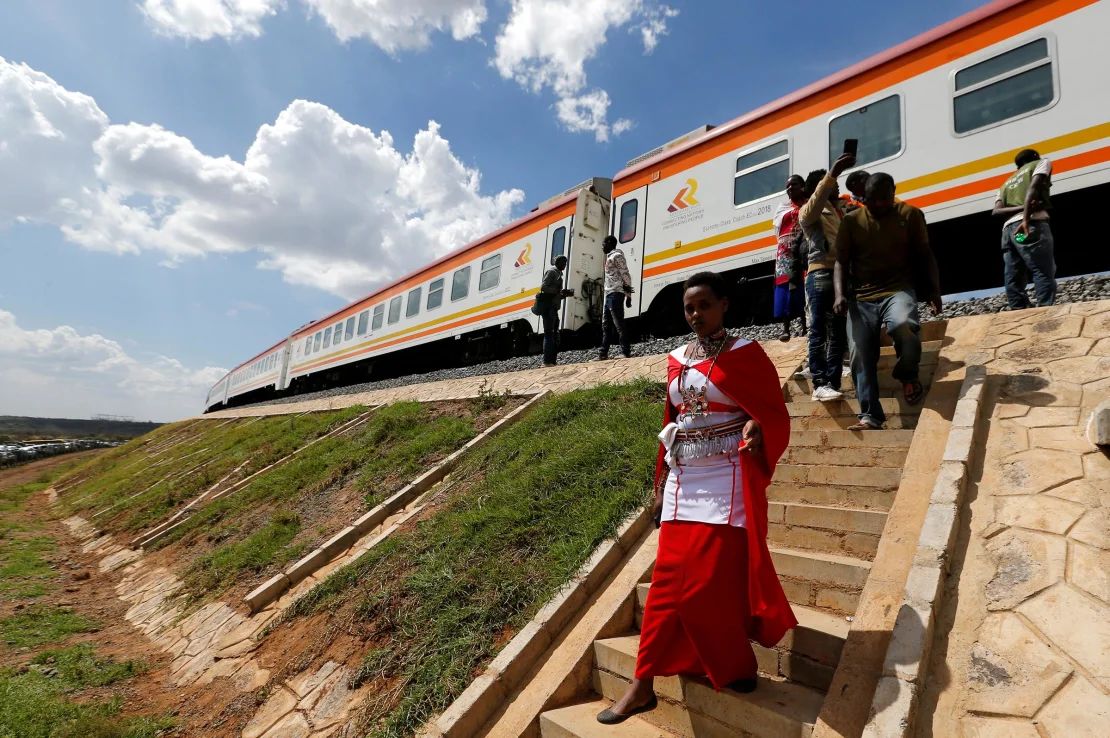Trump states that the dismantling of the USAID will save money, but experts say it is a “great gift” for China

CNN
–
The existence of the United States Agency for International Development (USAID) hangs from a thread. President Donald Trump seeks to close it and argues that it is a waste of money and is directed by “lunatics.” But experts warn that this plays directly in favor of the same country that he considers the greatest threat to US interests: China.
The dismantling of the agency, which provides humanitarian aid and for development, advances at a frantic pace. On the first day of his presidency, Trump ordered a freezing of 90 days of almost all foreign aid. On Thursday it was revealed that the government plans to reduce its workforce and move from 10,000 people to less than 300.
The decision will leave thousands of millions of dollars in help in Limbo. The repercussions will be immediate: it will end global health programs that save lives, early alert systems and food security campaigns.
It will also create a vacuum that other countries can fill, said the New Jersey senator, Andy Kim. “Trump’s actions weaken the American leadership and global influence at a time when we face serious national security threats,” said the Democrat. “Trump opens the door to our competitors and adversaries.”
Among those competitors, the main one is China, who has long been building its influence on the developing world through huge investments. Several experts told CNN that the country is prepared to harvest the benefits of an American retreat from the world stage.
USAID was established in 1961 by President John F. Kennedy to counteract the role of the Soviet Union in developing countries. Its declared objective was to promote global social and economic development. “It is a giant symbol of internationalism … of the commitment to the rest of the world,” said Li Shuo, director of the Center on China’s climate at the Asian Society Policy Institute.
In later decades, USAID has contributed to American influence, said Sherri Goodman, general secretary of the International Military Council on Climate and Security.
The USAID is not only altruistic, but also serves national interests, said George Ingram, a senior member of the Brookings Institution and former agency during the Clinton government.
It can develop markets with which the United States can trade and has also helped countries be more stable, which can stop global migration and prevent the United States from being dragged into conflicts abroad. The Usaid climatic programs have created resilience and addressed energy poverty, but have also created a “leveling playing field” for US renewable energy companies, said Gillian Caldwell, former climate director of the USAID left by the agency in the late December.
Withdrawing this help creates a “power emptiness” and represents a “great gift” to China, said Goodman. Especially because the influence of the country in the Global South has been growing for years.
In part, that happens thanks to its initiative known as the belt and the route, which has led the country to invest hundreds of billions of dollars in economic development and infrastructure development projects in Asia, Africa, Latin America and parts of Europe. President Xi Jinping is cultivating the image of China “as a natural leader of the Global South,” said Steve Tsang, director of the China Institute at the School of Eastern and African Studies.

Tsang said that China is unlikely to directly replace the USAID lost financing. These programs mostly imply humanitarian assistance, while China’s development assistance consists overwhelmingly in loans. Beijing has been criticized for allegedly being carrying developing countries with unsustainable debt, an accusation that the authorities deny.
There are also signs that China’s development of development has slowed down in recent years, especially with regard to the greatest parties.
But, ”said Tsang,” dismantling USAID, she will allow China to project as a consistent and reliable partner in marked contrast with the United States, and forge more solid relationships throughout the global south, increasing her geopolitical power. It will also help China stand out as a leader in climatic issues, he added, even more consolidating his domain in clean energy technologies.
Max Primorac, principal investigator at the Heritage Foundation and an deputy official of USAID during Trump’s first mandate, rejected the idea that dismantling USAID will be an impulse for China.
“It is the opposite,” said Primorac, author of a chapter on USAID’s review in project 2025, the right plan for Trump’s second mandate. USAID’s “green energy agenda enclosed countries in China’s dependence, told CNN, added that the agency had lost its legitimacy by becoming a vehicle to export” ideology “, including that relative to climate change.
It is not clear what USAID programs could survive – if anyone does. The agency’s interim administrator, Secretary of State Marco Rubio, has said that there are parts of his financing he supports, but the details remain inaccurate.
Even if some projects remain, there are enormous concerns that confidence in the US has already undergone fatally and a great winner will leave that situation.
“Trump has probably done more for China to be great again in two weeks than Xi has managed to do in his own right in more than a decade,” Tsang said.
Simone McCarthy of CNN contributed to this report.
(Tagstotranslate) USAID
Source link





